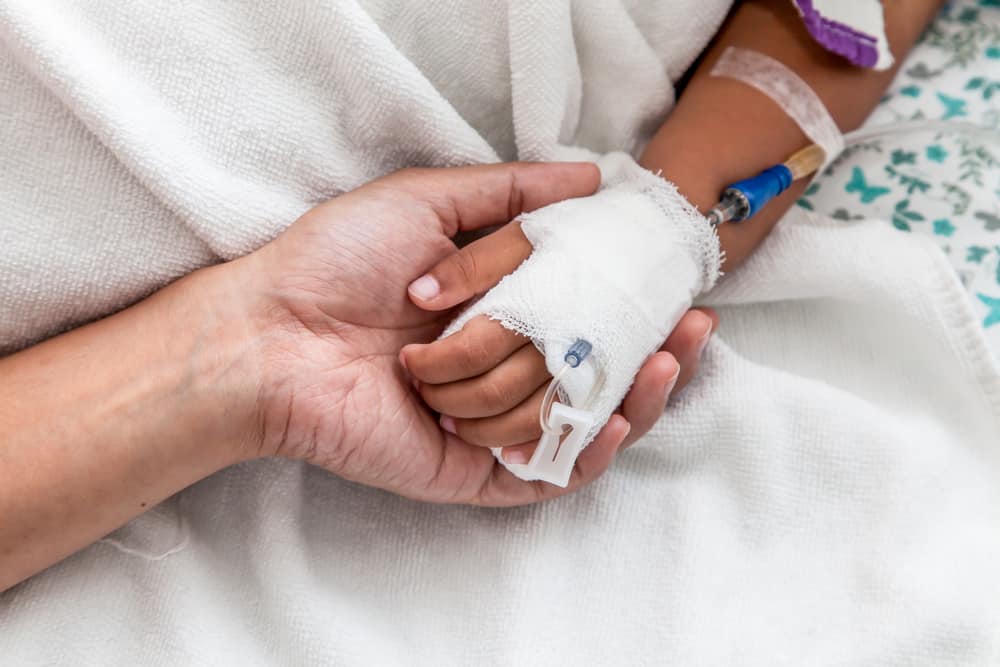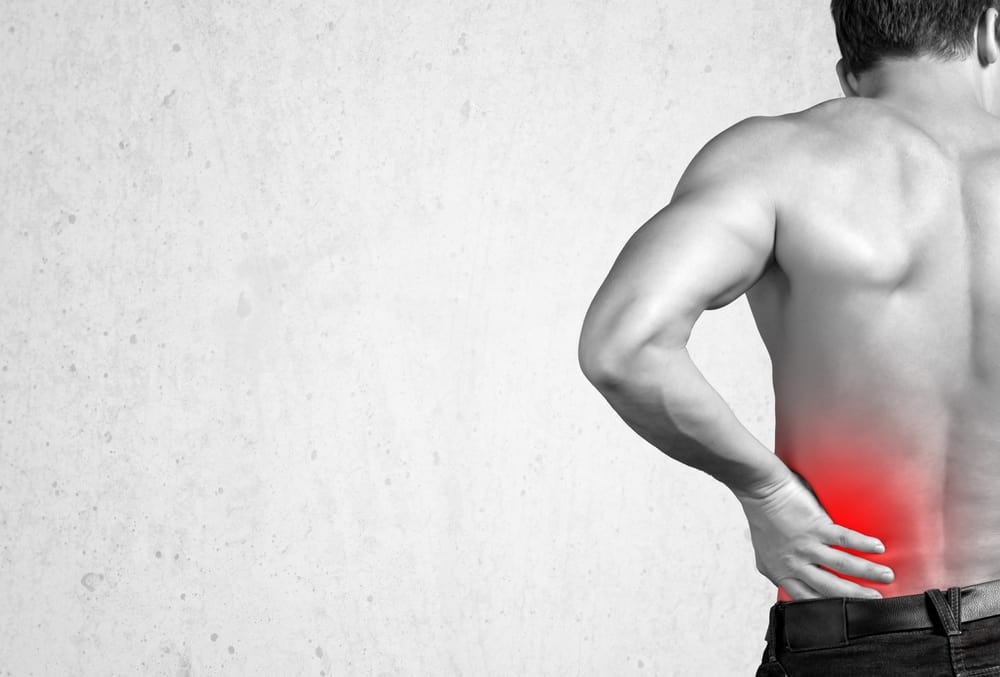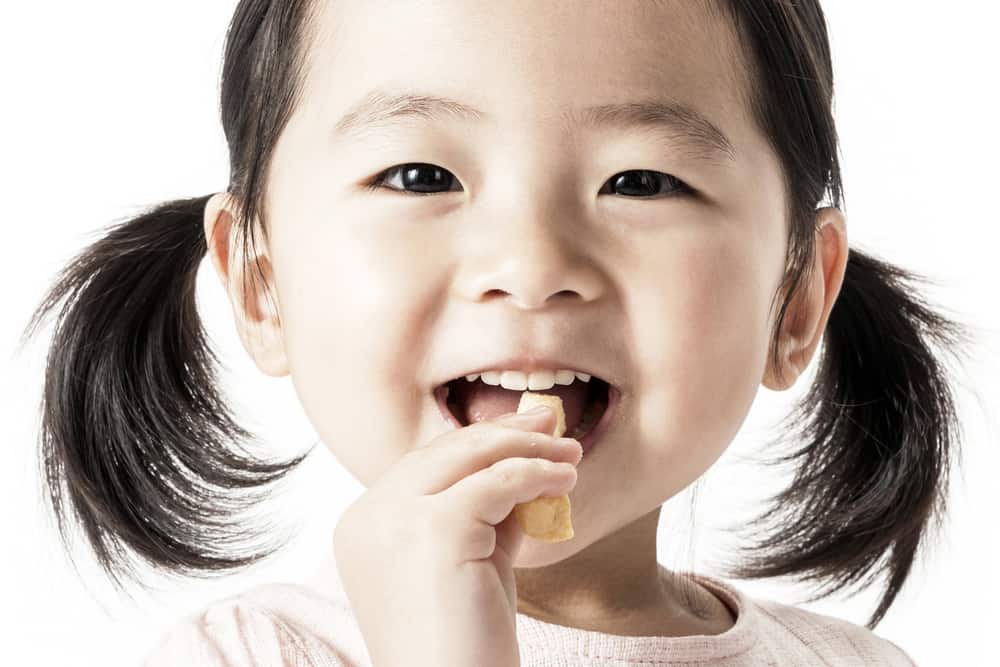Contents:
- Medical Video: Smoking Causes Cancer, Heart Disease, Emphysema
- What is rabdomiosarkoma?
- The types of muscle cancer to watch out for
- Signs and symptoms of muscle cancer
- Causes and risk factors for muscle cancer
- Treatment of muscle cancer
Medical Video: Smoking Causes Cancer, Heart Disease, Emphysema
Cancer not only attacks adults, but can also attack children. One type of cancer that most often affects children under five is muscle cancer aka rabdomiosarkoma.
It is not easy to detect cancer in children because most symptoms are vague. So, you need to be more aware of this. Well, what is muscle cancer like? What are the causes and treatment? You can find all the answers in the following review.
What is rabdomiosarkoma?
Rabdomiosarkoma is the growth of malignant tumor cells (cancer) in the tissuessoft tissue of the body, such as muscles and connective tissue (tendons or tendons). In rabdiosarkoma, the cancer cells look similar to immature muscle cells. Muscle cancer is a rare type of cancer.
In the womb, muscle cells called rabdiomioblasts begin to form in the skeletal muscles at the seventh week of pregnancy. When these muscle cells grow abnormally fast and are violent, they turn into cancer cellsrabdomiosarkoma.
Because the development of rabdiomioblast muscle cells occurs in the embryonic period, muscle cancer is more common in children. Even so, does not rule out the possibility of adults can also experience it. Unfortunately, this disease tends to be more difficult to treat in adults.
Rabdomiosarkoma is most often formed in the muscles in the following body parts:
- Head and neck (for example near the eye, inside the nasal or throat sinuses, or near the spine of the neck)
- Urinary and reproductive organs (bladder, prostate gland, or female organs)
- Hands and feet
- Chest and stomach
The types of muscle cancer to watch out for
Muscle cancer consists of two of the most common main types, including:
- Embryonal rabdomiosarcoma. Embryonal rabdomiosarkoma usually attacks children under five years. This condition tends to occur in the head and neck, bladder, vagina, or around the prostate and testicles.
- Alveolar rabdomiosarkoma. The opposite of embryo rabdomiosarkoma, this type of muscle cancer is more likely to occur in older children and adolescents. Aveolar rabdomiosarcoma most commonly attacks large muscles of the chest, abdomen, arms and neck. This type of muscle cancer tends to grow faster than embryonal rabdomiosarcoma and thus requires more intensive care.
- Ranaplastic abdomiosarkoma, a type that is very rare and vulnerable to attacking adults.
Signs and symptoms of muscle cancer
Muscle cancer may cause pain, but maybe not. The symptoms also vary depending on the location of the growth of the cancer cells.
- Rabdomiosarcoma tumors in the nose or throat can cause nosebleeds, bleeding, difficulty swallowing, or nervous system problems if they occur to the brain
- Tumors around the eyes cause prominent eyes, vision problems, swelling around the eyes, or pain in the eyes
- Tumors in the ear cause pain, swelling, and loss of hearing
- Bladder and vaginal tumors cause problems with urination or bowel movements and problems controlling urine (urinary incontinence).
Causes and risk factors for muscle cancer
Just like other types of cancer, the exact cause of muscle cancer is not yet known. However, rabdiosarcoma is more common in children. From this age group, then it can be known about any risk factors that can make a child susceptible to muscle cancer. That is:
- Children under 10 years old, but can also occur in adolescents and adults.
- More common in men than women.
- Children with birth defects.
- Genetic mutations of family derivatives.
- Li-Fraumeni syndrome, a rare genetic disorder that makes a person prone to cancer in his life.
- Neurofibromatosis, a condition that causes tumors to grow on nerve tissue.
- Beckwith-Wiedemann's syndrome, a congenital disorder that causes too much cell growth in the body.
- Costello syndrome and Noonan syndrome, conditions that cause deformities, developmental delays, and other problems.
Treatment of muscle cancer
Treatment of muscle cancer is based on the location and type of rabdomiosarkoma itself. Treatment options for muscle cancer include chemotherapy, surgery, and radiation therapy.In general, surgery and radiation therapy are used to treat tumors in their primary location. While chemotherapy is used to treat cancer that has spread throughout all parts of the body. Therefore, consult a doctor for proper treatment in accordance with the type of muscle cancer experienced.












